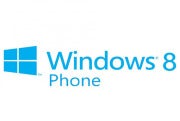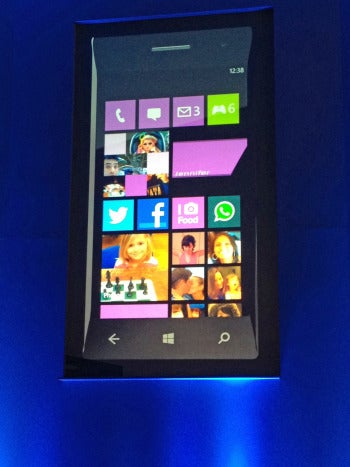Windows Phone 8 Will Be Deeply Integrated With Windows 8 OS
Microsoft says its new mobile operating system, Windows Phone 8, will be deeply integrated with the Windows 8 OS in tablet and desktop PCs. No upgrade for existing WP7 users, however.
 Microsoft
announced today that its forthcoming mobile operating system, Windows
Phone 8, will become closely linked with desktop PCs and tablets running
Windows 8.
Microsoft
announced today that its forthcoming mobile operating system, Windows
Phone 8, will become closely linked with desktop PCs and tablets running
Windows 8.Windows Phone 8 is expected to go into general release with the Windows 8 operating system this fall. The first Windows Phone 8 phones will come from Nokia, Huawei, Samsung, and HTC, and will be built with chips from Qualcomm. Microsoft rolled out the new features in a Windows Phone platform preview for developers (who need to know the new features early) at the Windows Phone Developer Summit held in San Francisco today.
With many wondering about the fate of Windows phones in an iPhone world, Microsoft is effectively linking the fate of its mobile operating system to the success of its PC operating system, which is currently used by 1.3 billion people worldwide. It is Redmond's second big announcement this week: The Microsoft Surface tablet event happened Monday.
"The future of Windows 8 is a 'shared core' between Windows Phone 8 and Windows 8," said Windows Phone 8 product manager Joe Belfiore. This means that the two operating systems will share the same kernel, plus the same files system, multimedia apps, and graphics support.
 The Microsoft Windows Phone 8 "tiles" interface.For
users, this integration means that apps that work on Windows phones
will also work on desktop PCs and tablets, and they will find it easier
to share content and apps seamlessly between their Windows Phone and
their Windows tablet or desktop PC.
The Microsoft Windows Phone 8 "tiles" interface.For
users, this integration means that apps that work on Windows phones
will also work on desktop PCs and tablets, and they will find it easier
to share content and apps seamlessly between their Windows Phone and
their Windows tablet or desktop PC.The shared core also will make life easier for developers because they will be able to create content and apps that run on both phones and PCs; they can spend far more time developing, and far less time "versioning."
This in turn should mean that Windows Phone users will benefit from a reenergized development community that will develop cooler apps--apps that could be far more competitive in number and quality than Apple ecosystem apps.
Here are some of the major improvements in Windows Phone 8:









0 comments:
Post a Comment